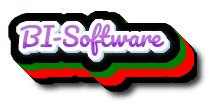The Customer Relationship Management (CRM) software market has undergone significant transformations over the years, driven by advances in technology, changing customer expectations, and the need for businesses to stay competitive. As we navigate the complexities of the digital age, CRM software has become an essential tool for companies to manage customer interactions, streamline sales processes, and gain valuable insights into customer behavior.

Current Market Trends
The global CRM software market is expected to continue its upward trajectory, with projected growth from $43.7 billion in 2020 to $82.7 billion by 2025, at a Compound Annual Growth Rate (CAGR) of 12.1%. This growth can be attributed to several key trends:
- Cloud-Based CRM: The shift towards cloud-based CRM solutions has gained momentum, with more businesses adopting cloud-based platforms to reduce costs, increase scalability, and enhance collaboration. Cloud-based CRM solutions offer greater flexibility, allowing businesses to access customer data from anywhere, at any time.
- Artificial Intelligence (AI) and Machine Learning (ML): The integration of AI and ML in CRM software is revolutionizing the way businesses interact with customers. AI-powered chatbots, for instance, are being used to provide personalized customer support, while ML algorithms help analyze customer data to predict behavior and preferences.
- Mobile CRM: The increasing use of mobile devices has led to a rise in mobile CRM adoption. Mobile CRM enables sales teams to access customer information, update records, and manage leads on-the-go, improving productivity and responsiveness.
- Social CRM: Social media has become an essential channel for customer engagement, and social CRM is helping businesses to leverage this opportunity. Social CRM enables companies to monitor social media conversations, respond to customer queries, and build brand awareness.
- Customer Experience (CX): The focus on CX has become a top priority for businesses, with CRM software playing a critical role in delivering personalized, omnichannel experiences. Companies are using CRM to gather customer feedback, analyze behavior, and create tailored experiences that meet individual needs.
Industry-Specific Trends
Different industries are adopting CRM software in unique ways, driven by specific needs and challenges:
- Healthcare: Healthcare organizations are using CRM to improve patient engagement, streamline clinical trials, and enhance patient outcomes.
- Financial Services: Financial institutions are leveraging CRM to manage customer relationships, detect fraud, and comply with regulatory requirements.
- Retail: Retailers are using CRM to personalize customer experiences, manage loyalty programs, and optimize inventory management.
- Manufacturing: Manufacturers are adopting CRM to manage complex sales processes, track customer interactions, and improve supply chain efficiency.
Challenges and Opportunities
While the CRM software market is experiencing rapid growth, there are challenges that businesses must address:
- Data Quality: Ensuring data accuracy, completeness, and consistency is essential for effective CRM implementation.
- Integration: Integrating CRM with existing systems, such as marketing automation and customer service platforms, can be complex and time-consuming.
- User Adoption: Encouraging user adoption and ensuring that employees are properly trained on CRM software is crucial for success.
- Security: Protecting customer data and ensuring the security of CRM systems is a top priority, particularly in industries with stringent regulatory requirements.
Despite these challenges, the CRM software market presents numerous opportunities for businesses to:
- Enhance Customer Engagement: CRM software enables companies to deliver personalized, omnichannel experiences that drive customer loyalty and retention.
- Improve Sales Performance: CRM helps sales teams to manage leads, track customer interactions, and analyze sales performance, leading to increased revenue and growth.
- Gain Valuable Insights: CRM software provides businesses with actionable insights into customer behavior, preferences, and needs, enabling data-driven decision-making.
FAQ
- What is CRM software?
CRM software is a tool used to manage customer interactions, sales processes, and customer data. - What are the benefits of using CRM software?
The benefits of using CRM software include improved customer engagement, enhanced sales performance, and valuable insights into customer behavior. - What are the different types of CRM software?
The different types of CRM software include cloud-based, on-premise, and hybrid solutions. - How do I choose the right CRM software for my business?
To choose the right CRM software, consider your business needs, industry, and budget, and evaluate features such as scalability, customization, and integration. - What is the future of CRM software?
The future of CRM software is expected to be shaped by emerging technologies such as AI, ML, and the Internet of Things (IoT), which will enable businesses to deliver more personalized, automated, and predictive customer experiences.
Conclusion
The CRM software market is evolving rapidly, driven by advances in technology, changing customer expectations, and the need for businesses to stay competitive. As companies navigate the complexities of the digital age, CRM software has become an essential tool for managing customer interactions, streamlining sales processes, and gaining valuable insights into customer behavior. By understanding current market trends, industry-specific trends, and challenges, businesses can harness the power of CRM software to deliver personalized, omnichannel experiences that drive customer loyalty, revenue growth, and long-term success. As the CRM software market continues to grow and evolve, it is essential for businesses to stay informed, adapt to changing trends, and prioritize customer experience to remain competitive in today’s fast-paced digital landscape.
Closure
Thus, we hope this article has provided valuable insights into The Evolving Landscape of CRM Software Market Trends. We appreciate your attention to our article. See you in our next article!
